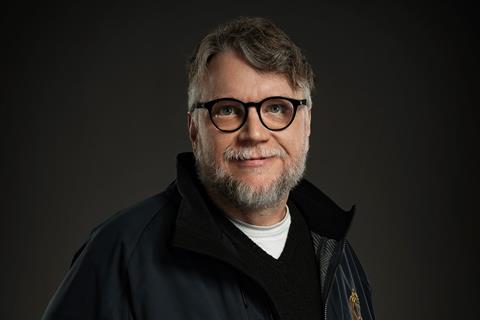Guillermo del Toro said “forgiveness and imperfection” lie at the heart of his Netflix film Frankenstein and how he continues to be inspired by
Guillermo del Toro said “forgiveness and imperfection” lie at the heart of his Netflix film Frankenstein and how he continues to be inspired by leading Korean filmmakers.
Speaking at Busan International Film Festival, where his latest feature will receive its IMAX premiere, del Toro reflected on how his adaptation of Mary Shelley’s 1818 novel brings with it a message of forgiveness in obscure times.
“We live in a time when we have polarised everything – completely good or bad,” said the director at a press conference. “There’s no oxygen for humanity in those two sides. We all exist in the middle… Why should we not be imperfect and forgive each other? That’s what I wanted to tell with the movie. If you can understand any other human being a little better, you will listen more clearly.”
Del Toro, who previously explored otherworldly creatures in The Shape Of Water, Pan’s Labyrinth and Hellboy, spoke about his endless fascination with monsters as reflections of real life.
“There is a part of audiovisual storytelling that I find oppressive: all the happy, beautiful people who are never afraid,” he said. “I find that life is full of imperfection and pain. Monsters are patron saints of imperfection, which allow us to make peace with the darker side of humanity.”
Busan marks the third stop on his festival tour with Frankenstein, which premiered at Venice before going on to play Toronto. Reflecting on his love of South Korean cinema, the director animatedly cited the work of directors such as Bong Joon Ho and Park Chan-wook, whose No Other Choice opened the 30th edition of BIFF on Wednesday.
“They bring the chaos, the ridiculous, the sublime, the poetic and the horrible all in the same movie,” said del Toro. “Every time I want to feel more alive, I watch a Korean movie I like. They’re full of vigour.”
Asked if he might ever make a film in Korea, del Toro said ” I’m very crazy and bold – I may try,” while noting that he would have to learn more about the mythology of the country. “In Pinocchio, for example, I knew it very well, and I was convinced I was honouring the myth. So would I be interested? Yes. Would I be able to? I don’t know.”
Autobiographical aspect
Frankenstein, which del Toro has been planning since at least 2008, stars Oscar Isaac as Victor Frankenstein and Jacob Elordi as his creature.
“I found (the 1931) Frankenstein very autobiographical,” said the filmmaker. “When I saw Boris Karloff, I felt I was him. I understood it as a fable of me and my father as a figure who remained elusive to me as I grew up. I then became a father, which helped me understand my own father more, and the film became the tale of a father and son and a lineage of pain. The film wouldn’t have been the same [if I made it] at 30 or 40 [years old] as it was at 60.”
Expanding on what made his adaptation unqiue, del Toro spoke about filtering the story through his own voice. “All I can offer when I sing a song that’s been sung before is to use my heart and soul to make it new,” he said. “Shelley was Protestant, but I’m a lapsed Catholic, and there’s a lot of Catholicism in the movie.”
He also spoke about including themes featured in the novel but not included in previous cinematic adaptations, such as the spectre of war and the unique look of his creature.
“I wanted it to look not like a victim patched together in an emergency room, but like a newborn: translucent, perfectly designed, like a blank, like someone who has nothing, who is hurt and who learns from pain.”
Expanding on the idea of imperfection, del Toro talked about embracing problems on set to bring vitality to his films.
“When something goes wrong on set, it’s a good thing,” said del Toro. “It’s the film telling you that something is wrong.”
Giving anexample, del Toro cited Jacob Elordi’s creature makeup. The actor was initially to be fitted with two equally sized contact lenses, but one would not fit in the actor’s eye. Instead of solving the problem with digital effects, del Toro decided to give the creature eyes of different sizes, which ultimately became one of its most distinctive visual features.
“I think all great directors, even the perfectionists, are courting the accident,” he added. “They prepare very much then hope that something happens to make the movie come alive – like Frankenstein.”

COMMENTS